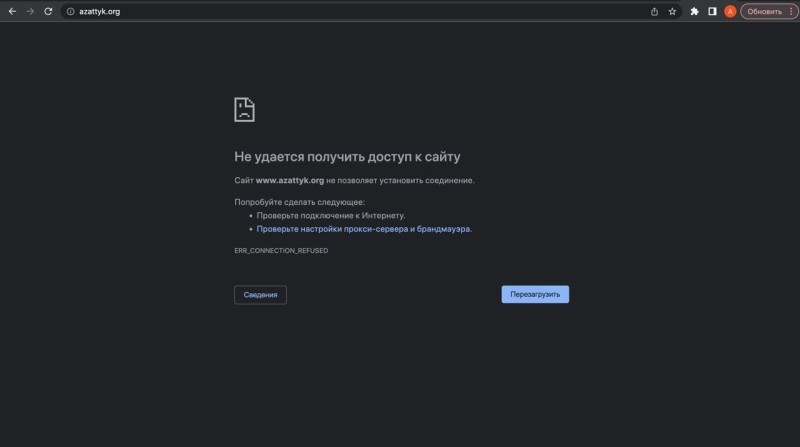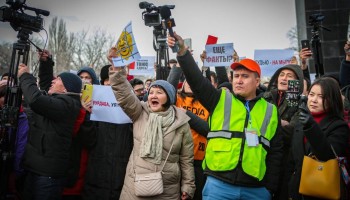The video, aired by the local RFE/RL branch known as Azattyk, “has elements of hate speech,” and contains “unconfirmed information about an alleged attack by the Kyrgyz side on Tajikistan,” a press release issued by the Ministry of Culture said.
The suspension was imposed in “response to unreliable publications in the information sphere of the country, contrary to the national interests of the Kyrgyz Republic,” and will last for two months, it added.
The Ministry said it had sent two letters asking Azattyk to delete the video and protect the public from inaccurate information on the web. The outlet ignored the first letter, according to the ministry, and replied to the second, saying that Azattyk was “taking appropriate measures and doing the technical work to remove the specified publication from its platform.”
But because the video was not taken down from the YouTube channel of the RFE/RL-produced TV channel “Current Time”, the Ministry decided to suspend Azattyk’s website for a period of two months through web hosting services, internet providers and telecom operators.
The president of RFE/RL Jamie Fly commented that Radio Liberty takes its commitment to balanced coverage seriously.
“We have reviewed the content of this video and found no violation of our standards. We will not succumb to pressure to remove balanced content from our sites, whether it be from the Kremlin or the government of Kyrgyzstan,” he said.
The last time that Azattyk's website was blocked was in February 2010 – two months before the uprising that ousted then-president Kurmanbek Bakiev.
The current suspension has been criticized by activists, lawyers and social media users.
Lawyer Akmat Alagushev believes that the decision is illegal because the same institution that complained about the video also decided on the suspension.
“Thus, it turns out that the ministry submitted a complaint itself and considered it itself,” Alagushev said.
Lawyer Saniya Toktogazieva echoed her colleague’s arguments.
“Can you imagine, the Ministry of Culture itself made the complaint and then suspended the site itself. What kind of chaos is that?” she asked in a Facebook post.
She claimed that the actions of the Ministry of Culture of Kyrgyzstan in relation to Azattyk do not hold water and described them as “absolutely incompetent, illegal, outrageous arbitrariness!”
Azattyk’s website has already been blocked by several internet providers in Kyrgyzstan, but on the day of the Ministry’s decision, the media outlet published instructions on how readers can continue to access the site using a VPN and their app.
The Ministry of Culture based its decision on the Law on Protection Against Inaccurate Information, which entered into the force in August last year and banned the publication of any false information.
If the false information is not taken down after a complaint made by anyone, the outlet can be banned for two month.
The non-governmental sector called the a law a restriction of freedom of speech and activist and former judge Klara Sooronkulova noted that it serves the authorities and not the citizens.
“If an information is discrediting a person’s dignity or honor, then to resolve the issue the person can appeal to the courts,” says Sooronkulova. “That’s the only mechanism that should be used. But by this law, that job is transferred to an authorized body without litigation. Whatever the case, everything should be executed through a court decision. In court, the parties must present their arguments on an equal footing.”
Other activists and journalists also criticized the law last month, saying that it contradicts the country's Constitution and was approved despite objections expressed by media experts who claimed the legislation does not define any precise criteria or methodologies, nor mechanisms and procedures by which information is recognized as false.






